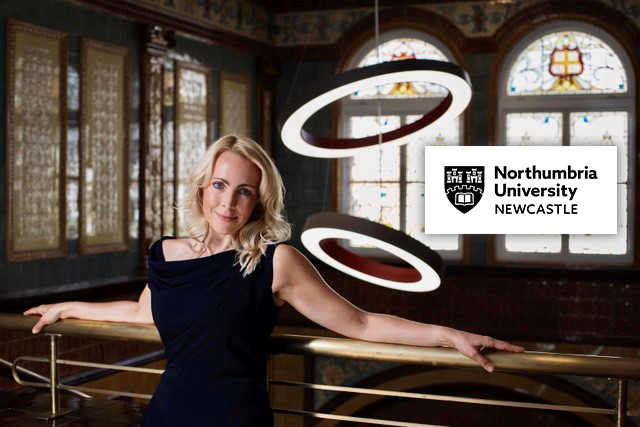
Katy Shaw – Professor of Contemporary Writings, Northumbria University – talks about stepping up to level up.
I was appointed as the first female Professor of English Literature at Northumbria University in 2018 and also hold a leadership portfolio as Director of Cultural Partnerships. The best thing about my job is how varied it is - no two days are the same. I teach students from foundation degree level to PhD, supervise Post-Docs, lead cultural partnerships with galleries, museums and theatres, manage relationships with international organisations, sit on the board of national associations and produce commercial consultancy research for a host of organisations including the British Council and ALCS. I also mentor women at every level of HE, from early career researchers through to horizonal development sessions and coaching workshops with fellow senior female leaders. I learn something new from every mentoring session and the greatest reward of the job is seeing the next generation rise to fulfil their potential and goals.
I have always been aware that being a female professor carries with it a special responsibility to be visible and to mentor other academics in their own career pathways. Mentoring was never really a ‘thing’ when I started work in academia - any advice I received along the way came via informal ‘tips’ over a drink after work, in the queue for the photocopier at 8.55am before a lecture, or chanced at an office door between teaching. But things have changed a lot in the last ten years, and now mentoring is rightly being recognised and resourced as a wise investment.
Women are visible in many levels of education, but often the further up the leadership levels you go, the fewer women there are around the table. In practice, senior strategic leadership roles are often incompatible with other choices that women have to make and increasingly they do not rank highly in terms of work/life balance or job satisfaction. There is some work to be done around exploring different models of management that make HE leadership a more attractive proposition for the best female academics today.
That starts with role modelling alternative approaches to a fully inclusive leadership style and this is a challenge that myself and other women in senior HE leadership roles need to take forwards. I’ve always been lucky to work in organisations where I can look up and see women making decisions and leading above me. They have offered me models of management and strategies for negotiating some of the more subtle glass ceilings that I’ve bounced off over the years. Having visible female HE leaders - as Deans, DVCs and VCs - is something that universities need to be a lot better at. We need targeted recruitment and development drives if we want to have more diverse senior leadership teams.
Equality makes sense on every level - full representation ultimately produces a better deal for everybody, economically as well as socially - and this is why IWD is as much about engaging our brilliant male colleagues as it is our female ones. I operate in some quite male-dominated fields, including the Northern Powerhouse, economics and literature and post- industrial culture. Sometimes at events I find that I am still the only woman on the platform. As an industry, academia is getting better at shouting out when we see practices that are questionable - for example, the presence of ‘manels’ - male only panels - popping up on agendas.
I have no interest in echo chambers or thought bubbles and facilitating genuine dialogue between diverse sectors and speakers is at the heart of my role as partnerships director. A strong and successful organisation has to want to raise all the ships. IWD is an annual reminder that in a world dominated by post-pandemic recovery, EDI cannot be kicked to the curb in discussions about how to get back on our feet after Covid. The only sustainable way forward - and the only real way of building resilience against future crises - is by getting up off our knees together. By stepping up to level up this International Women’s Day we can all commit to having the conversations and making the changes necessary to ensure that everyone’s voice gets a fair say in the future we need to start building today.